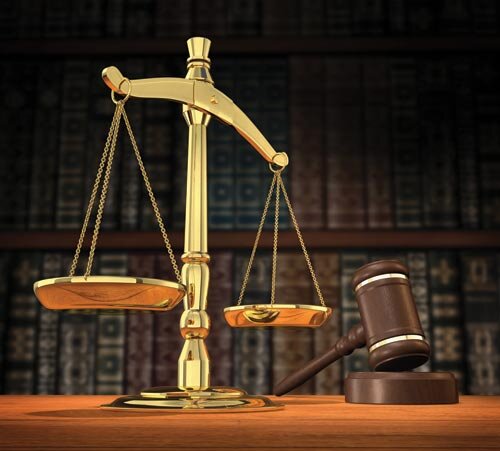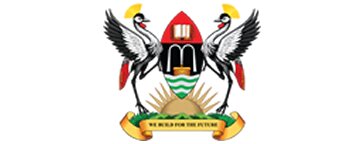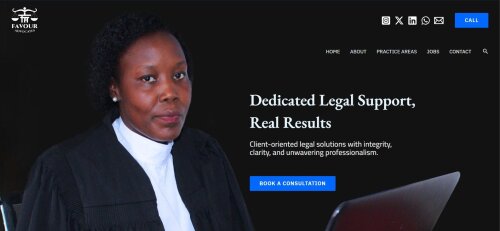Best Whistleblower & Qui Tam Lawyers in Kampala
Share your needs with us, get contacted by law firms.
Free. Takes 2 min.
List of the best lawyers in Kampala, Uganda
About Whistleblower & Qui Tam Law in Kampala, Uganda
Whistleblower and Qui Tam laws are legal statutes that provide individuals, often employees, the capability to report illicit actions or malpractice within organizations without fear of retaliation. In Kampala, Uganda, these laws are designed to protect the public from fraud by ensuring that individuals who expose misconduct are protected and, in certain cases, rewarded. The key focus is to promote transparency and accountability, whether in the government or private sectors.
Why You May Need a Lawyer
Navigating the complexities of whistleblower and qui tam actions can be daunting. You might need a lawyer if you are:
- Considering reporting unethical or illegal activities within your organization and are concerned about potential ramifications.
- In need of guidance to understand your rights and protections under Ugandan law.
- Facing retaliation or adverse action from your employer because you blew the whistle.
- Concerned about confidentiality and the potential legal consequences of your actions.
- Required to navigate legal proceedings or negotiations stemming from your whistleblower actions.
Local Laws Overview
Uganda’s whistleblower framework is upheld by several legal provisions that safeguard individuals who report corruption, crime, or other illicit behaviors. The primary legislation is the Whistleblowers Protection Act, which outlines the protections and processes for reporting misconduct. Under this law, whistleblowers are legally protected from victimization, and their identities can be kept confidential. Additionally, they may receive a reward for successful recovery of funds or assets resulting from their report. It is crucial to follow the correct procedures as prescribed by local laws to ensure these protections apply.
Frequently Asked Questions
What is a whistleblower?
A whistleblower is someone who exposes information or activity within an organization that is deemed illegal, unethical, or not correct.
What protections do whistleblowers have in Uganda?
Under the Whistleblowers Protection Act, individuals have the right to confidentiality and protection against retaliation, such as losing their job.
Can a whistleblower be anonymous?
Yes, whistleblowers can report misconduct anonymously; however, anonymity might impact the investigation process's expediency and effectiveness.
What type of misconduct can be reported?
Misconduct can include corruption, fraud, criminal activities, or violations of laws or ethical standards within an organization.
Is there a reward for whistleblowers in Uganda?
Yes, the law provides for financial rewards to whistleblowers if their information leads to the recovery of funds or assets.
Do I need to have evidence before reporting?
While having evidence strengthens your case, you do not need to possess evidence to report suspected wrongdoing.
Will I have to testify in court?
Testifying in court depends on the specifics of the case and whether your testimony is required to support the investigation.
How long does the process take?
The duration depends on the complexity of the case and the response of involved parties; some could conclude swiftly, while others may be prolonged.
Can my employer fire me for being a whistleblower?
No, the Ugandan law protects whistleblowers from retaliatory actions, including termination of employment.
Where can I report wrongdoing?
Reports can be made to designated authorities such as law enforcement, or through official reporting channels established by organizations.
Additional Resources
Several resources and organizations can provide further assistance and information, including:
- The Office of the Inspector General of Government (IGG)
- Ministry of Justice and Constitutional Affairs
- Legal aid and pro bono services organizations
- Human rights advocacy groups
Next Steps
If you believe you have witnessed misconduct and need legal assistance, consider these steps:
- Document any relevant information and evidence discreetly.
- Consult a lawyer specializing in whistleblower or labor law for tailored advice.
- Report the misconduct through the correct legal channels to ensure protection under the law.
- Stay informed about your rights and remain vigilant regarding any retaliatory actions.
Seeking legal counsel is crucial in navigating the complexities of whistleblower and qui tam law, ensuring that you are protected and guided through each step of the process.
Lawzana helps you find the best lawyers and law firms in Kampala through a curated and pre-screened list of qualified legal professionals. Our platform offers rankings and detailed profiles of attorneys and law firms, allowing you to compare based on practice areas, including Whistleblower & Qui Tam, experience, and client feedback.
Each profile includes a description of the firm's areas of practice, client reviews, team members and partners, year of establishment, spoken languages, office locations, contact information, social media presence, and any published articles or resources. Most firms on our platform speak English and are experienced in both local and international legal matters.
Get a quote from top-rated law firms in Kampala, Uganda — quickly, securely, and without unnecessary hassle.
Disclaimer:
The information provided on this page is for general informational purposes only and does not constitute legal advice. While we strive to ensure the accuracy and relevance of the content, legal information may change over time, and interpretations of the law can vary. You should always consult with a qualified legal professional for advice specific to your situation.
We disclaim all liability for actions taken or not taken based on the content of this page. If you believe any information is incorrect or outdated, please contact us, and we will review and update it where appropriate.

















